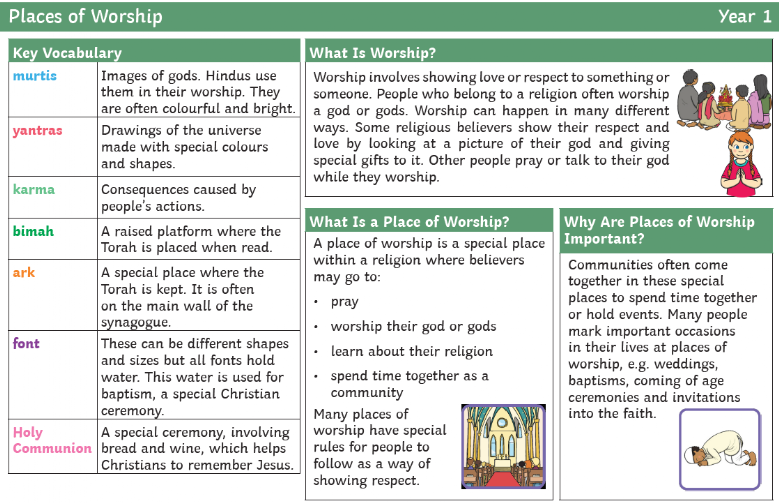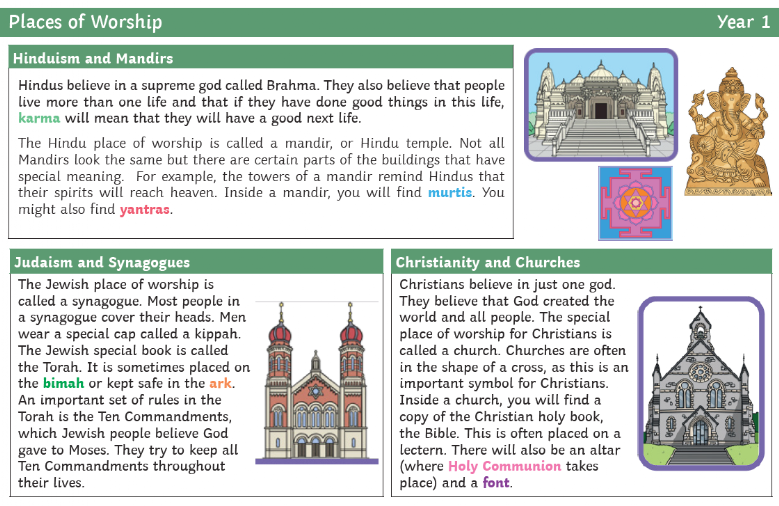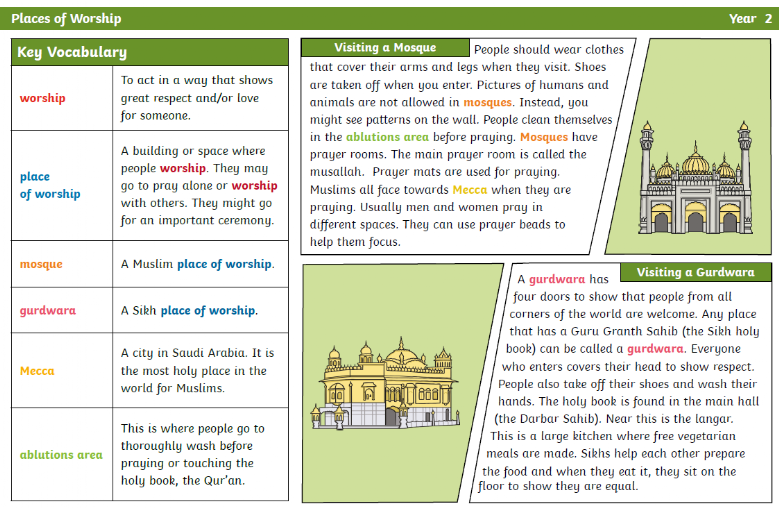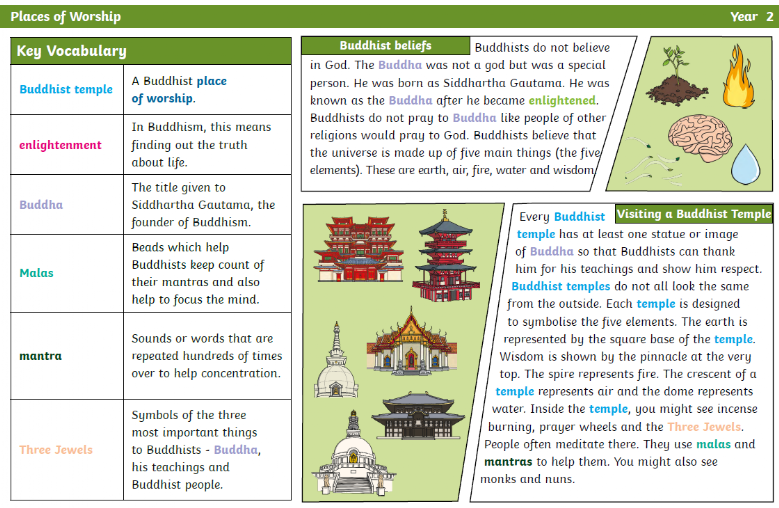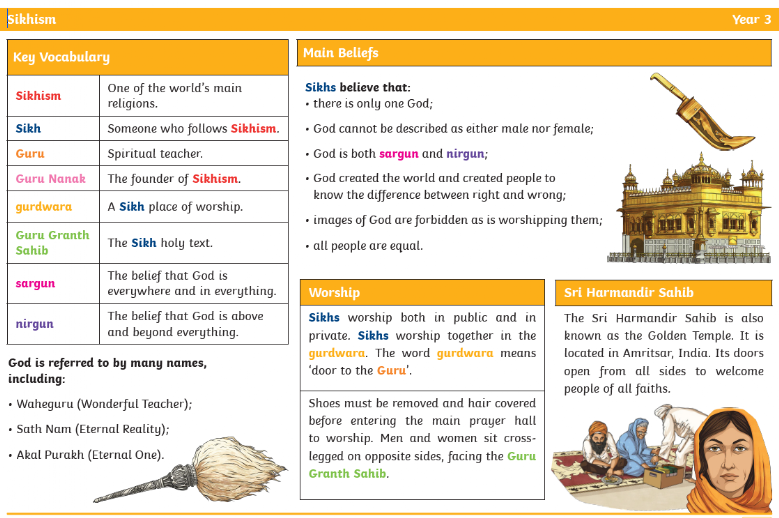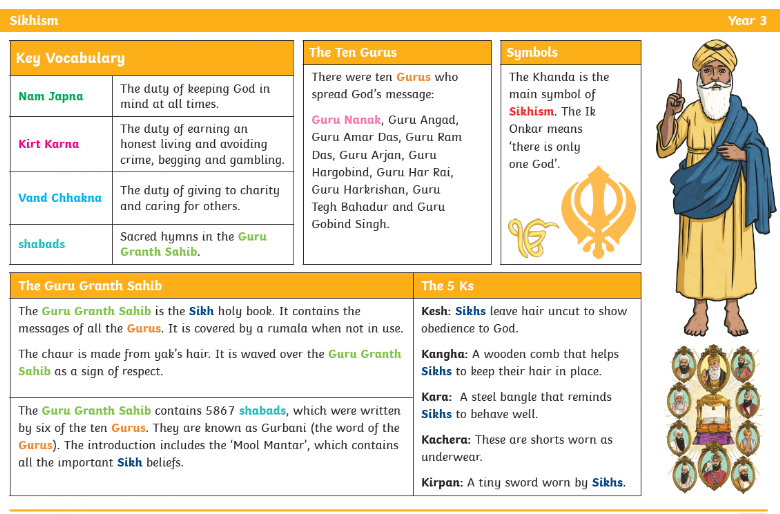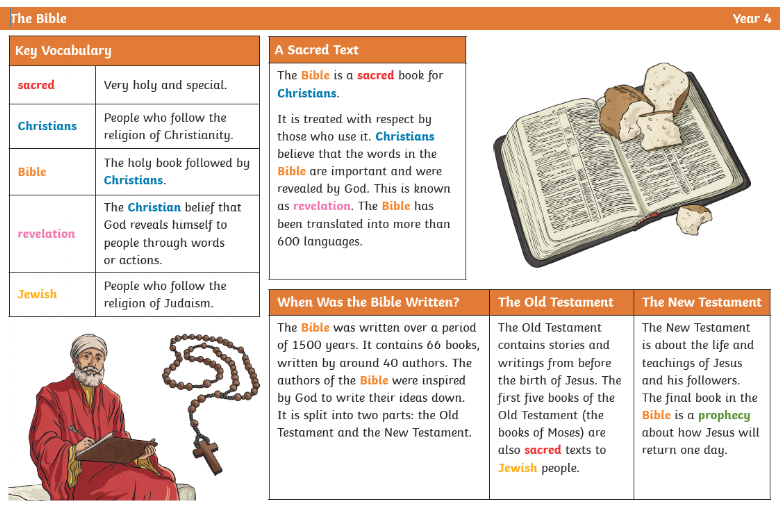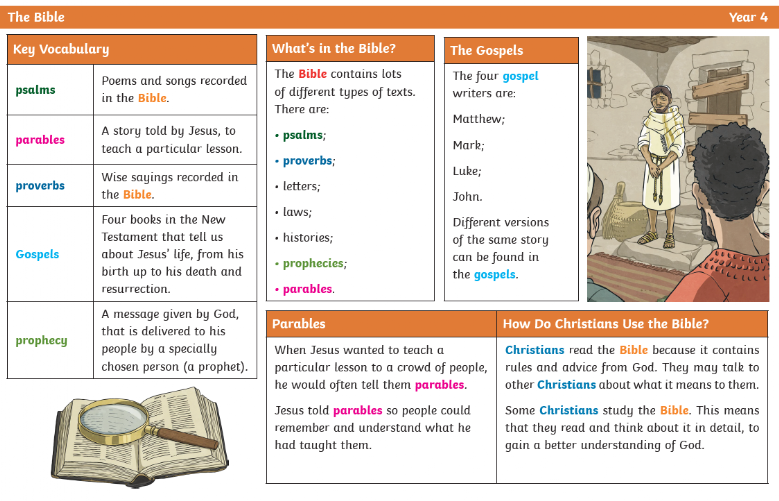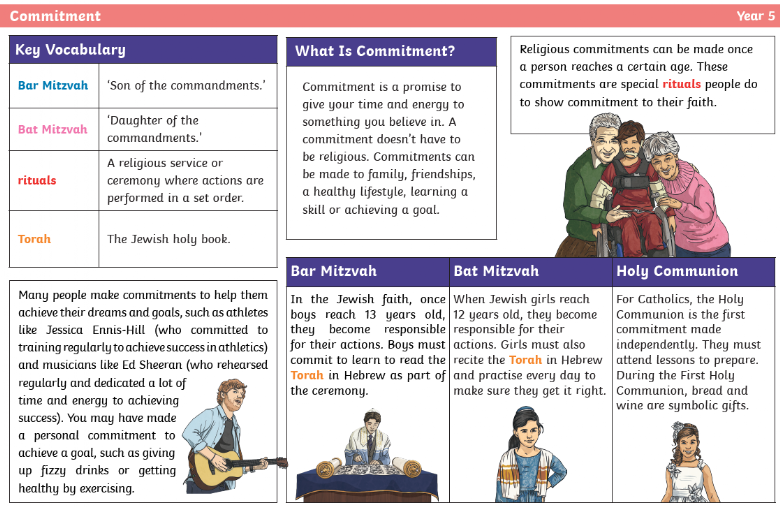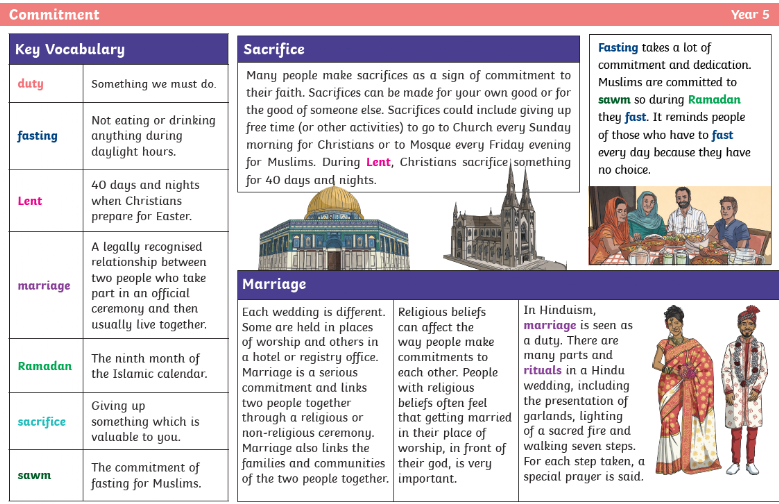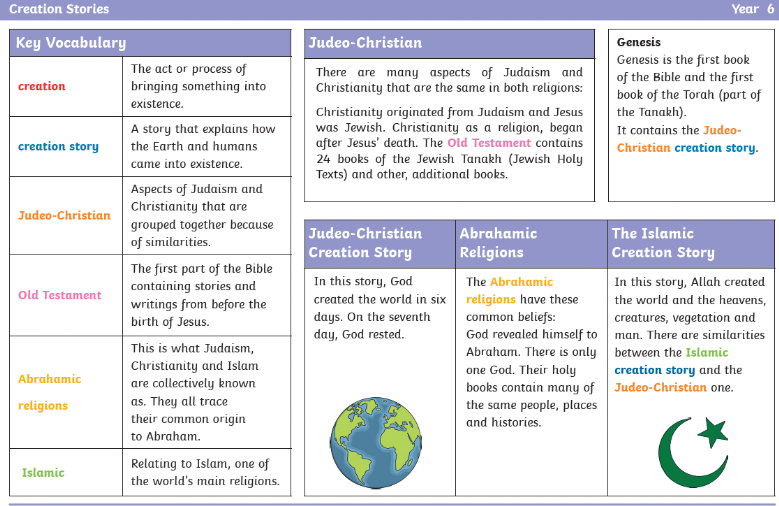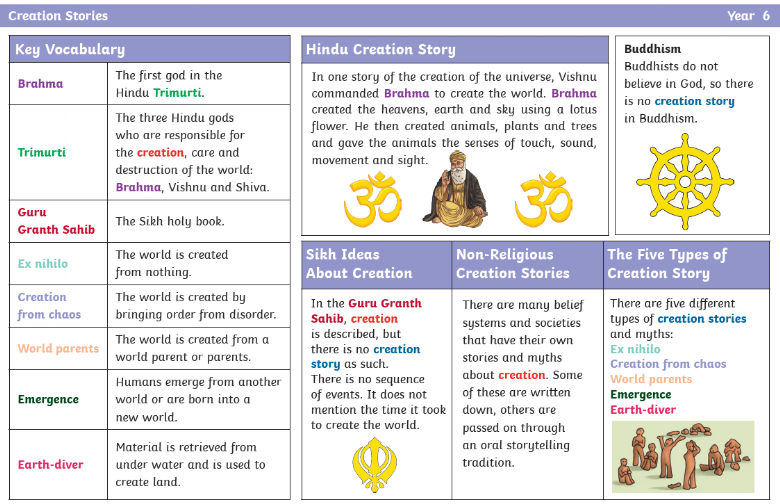What am I going to learn in RE?
Year 1 – Places of Worship
In this unit about places of worship, children will consider what a place of worship is, before exploring key features of a Jewish synagogue, Hindu mandir and Christian church. They will learn about objects, design and uses of each place of worship. Children will then discuss the importance of places of worship to religious believers and communities. To end the unit, children will consolidate their learning by applying the key features to their own design for a new place of worship.
Year 2 – Places of Worship
In this unit about places of worship, children reflect on special places and discuss a place that is special to them. They will learn about what a place of worship is and what happens there. The children will learn about what a visitor to a mosque, a gurdwara and a Buddhist temple might see and they will gain an understanding of how a visitor should behave in each of these places of worship. They will also develop an understanding of why places of worship are so important to the people who attend them. Children will explore similarities and differences between the places of worship they have been learning about and will apply their knowledge and understanding about places of worship by working with others to design a non-religious special place.
Year 3 – Sikhism
This unit gives an overview of Sikhism, focusing on its origins, core beliefs, festivals, special places. Furthermore, they will explore the different holy books and identify key Sikh symbols and understand their meanings.
Year 4 – The Bible
This unit on the Bible will look at the Bible in Christianity, its origins, its role as a sacred religious text and how it is used by Christians around the world. Children will consider the authorship of the Bible, discussing the Christian belief that it is the Word of God whilst finding out about different writers of books in the Bible. They will discuss the different text types used in the Bible and explore a story in greater depth. Children will apply their learning to consider an item or book that is sacred to them, and reflect on how respect can be shown to things that are sacred to others.
Year 5 – Commitment
This unit discusses the concept of commitment in both religious and non-religious ceremonies and daily life. By giving examples of commitments made by famous figures, it encourages children to make their own goals and invites them to review their commitment each week throughout the unit. Children also explore the concept of sacrifice and why sacrifices may be made. They will examine and discuss a range of religious and non-religious commitments and sacrifices made by others. They find out about non-religious, Jewish and Christian coming-of-age ceremonies, fasting within Islam and marriage within Hinduism. Children will then apply their learning by planning their own commitment ceremony and consider the changes they might make in their lives for the benefit of themselves and others.
Year 6 – Creation Stories
Children will learn a range of creation stories from world religions, less known or extinct religions as well as different cultures. They will sequence, compare and contrast the stories throughout the unit. In addition, they will be choosing a variety of ways to present their work which will enable them to reinforce key literacy and computing skills.

